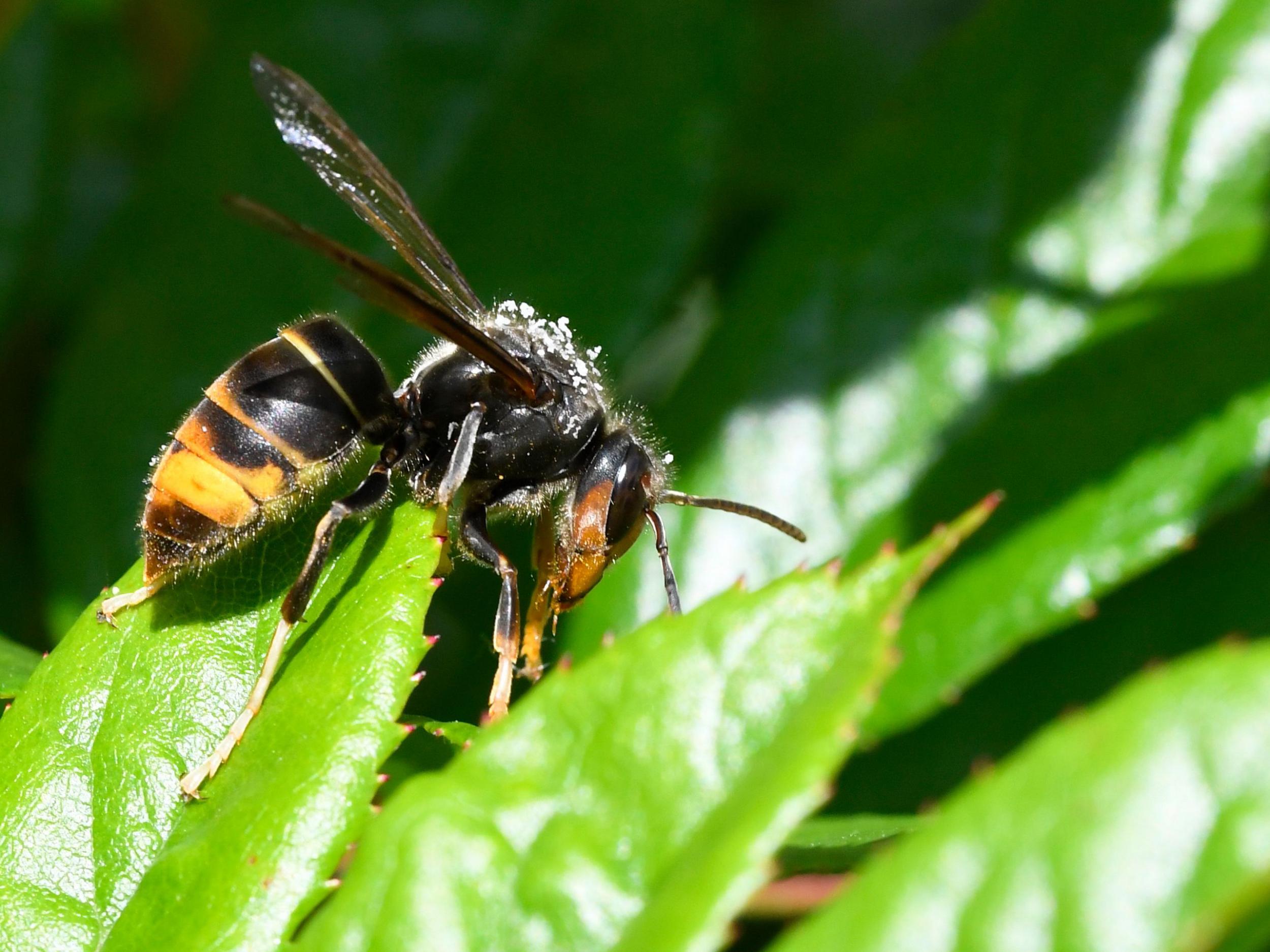Honey bee-killing Asian hornets spotted in Cornwall
Invasive species 'a major new threat to our beleaguered pollinator populations'

Invasive, bee-killing Asian hornets have been spotted in Cornwall, prompting government exterminators to hunt down and destroy their nests.
The foreign insects pose a “major” threat to UK honey bees whose numbers have already declined in previous years, experts said.
The sighting in south Cornwall near the town of Fowey follows previous encounters in Devon and Gloucestershire.
That prior experience means a “well established protocol” exists to deal with the threat, according to the Department for Environment, Food and Rural Affairs (Defra), which said work was already underway to identify any nests and destroy them.
Bee inspectors from the Animal and Plant Health Agency’s National Bee Unit have started carrying out surveillance and monitoring a 2km radius around the initial sighting.
The Asian hornet is smaller than its native cousin and poses no greater risk to human health than a bee. But it does pose a risk to honey bees.
“While the Asian hornet poses no greater risk to human health than a bee, we recognise the damage they can cause to honey bee colonies,” said Nicola Spence, Defra deputy director for plant and bee health. “That’s why we are taking swift and robust action to locate and investigate any nests in the south Cornwall areas following this confirmed sighting.
“Following the successful containment of the Asian hornet incursion in north Devon last year and Tetbury previously, we have a well established protocol in place to eradicate them and control any potential spread. We remain vigilant across the country, working closely with the National Bee Unit and their nationwide network of bee inspectors.”
Professor Juliet Osborne, from the University of Exeter, is a leading expert on Asian hornets and described the latest sighting as “concerning”.
She said: “Last year a nest was found in Devon, and the year before in Gloucestershire. This suggests that further sightings, particularly in the southwest of the UK, are highly likely and we must all be vigilant. It is an invasive species providing a major new emerging threat to our beleaguered pollinator populations.
She added: “We have developed a method to radio track these Asian hornets back to find their nests, and will be working with Defra in their aim to contain any new sightings. It is vital that we find out more about the actual impact of the hornet on both honey bee hives and our wild pollinators, and at the University of Exeter in Cornwall we are developing research plans to do so.”
Additional reporting by PA
Subscribe to Independent Premium to bookmark this article
Want to bookmark your favourite articles and stories to read or reference later? Start your Independent Premium subscription today.

Join our commenting forum
Join thought-provoking conversations, follow other Independent readers and see their replies